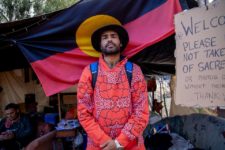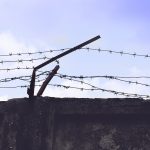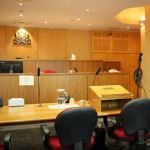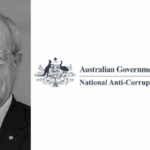Djab Wurrung “Stand Tall” in the Face of Neo-Colonisation

Victoria police turned up at the Djab Wurrung Heritage Protection Embassy on 8 August and issued the traditional owners camped there with a notice to vacate the sacred landscape in southwestern Victoria within 14 days.
Major Road Projects Victoria and VicRoads have plans to run a 12.5 kilometre stretch of the Western Highway duplication project between the towns of Ararat and Buangor straight through the lands of the Djab Wurrung people.
The landscape is of deep cultural significance to the locals, as it’s on a song line, and it holds around 3,000 trees, over 200 of which are sacred. A birthing tree on the land has seen over 50 generations of the Djab Wurrung born within the hollow of its trunk.
The Andrews government announced in February that it had amended the road route to allow for some of the most significant trees to remain. However, this misses the point, as for thousands of years, the entire area has been a place of women’s business.
And the traditional owners aren’t going to budge. They’ve suggested an alternative route in the north that the highway could take, which would save the area. And after 14 months at the protest camp, they’re not prepared to simply walk off and abandon country to bulldozers.
Sovereignty never ceded
“We’re very much ready if things should kick off in terms of people wanting to force us off country through physical harm, violence and intent to harm,” Djab Wurrung Embassy lore man Zellanach Djab Mara made clear. “We’re preparing ourselves for peaceful action.”
We’ve been “given some documentation on behalf of Major Roads Victoria around the legalities of vacating the premises, and how long we have”, he told Sydney Criminal Lawyers. And he added that those at the site are ready to “stand strong” and “stand tall”.
In May, Mr Djab Mara was arrested for driving without a licence and verbally disrespecting a police officer. For these minor charges, he was denied bail and detained in prison. And after 26 days inside, he pleaded guilty and a magistrate released him, conceding he’d already spent too long in gaol.
“An experience I wish upon no human being,” Djab Mara said of his time in prison. He described himself as a “political scapegoat” in regard to why the authorities incarcerated him for a prolonged period over such trifle matters: a move that many saw at the time as a means of silencing him.
And on whether Major Road Projects Victoria is planning on beginning construction on the day of eviction, Zellanach said, “we don’t particularly know their plans, because they don’t like to engage with us. We’re obviously on the other side of the fence”.
Cultural birthright denied
Since mid-2018, work on the Western Highway duplication project has been on hold, as the traditional owners had put in an application to save the landscape. However, last December, then environment minister Melissa Price decided she was going to let the project go ahead.
The Djab Wurrung people then appealed this outcome to the Federal Court, which overturned Price’s decision. This meant that newly-incumbent environment minister Sussan Ley had to make a final choice. And she too decided to give the project the green light.
“We’re very much disappointed in the minister’s decision. She has agreed not to save part of our country,” Mr Djab Mara said. “We didn’t cry about it. We’re going to move forward and we’re going to continue to keep going.”
Two Registered Aboriginal Parties – Martang Incorporated and the Eastern Maar Aboriginal Corporation – have signed off on the project. And these are the groups the government consulted on its amended route. However, these are not the First Nations peoples to whom the site is significant.
A site of women’s business
Zellanach explained back in April that when the Djab Wurrung people talk about “any kind of sacredness”, they’re referring to the particular area of country that the road project endangers. Indeed, it’s the place “where women prepare for the birth of children”.
After a child was born there, the lore man outlined, the mother and father would plant a tree. “That tree would then represent that baby. And that baby would grow in conjunction with that tree,” Mr Djab Mara continued. “However that tree grows is a direct reflection of how that child is growing”.
These trees are known as direction trees. According to Zellanach, there are “in excess of 200 culturally modified trees” in the area. One of the direction trees is 350 years old. And if the project goes ahead, it will be destroyed.
About 25 years ago these trees were marked as being of heritage significance, Mr Djab Mara recalled, but since then the paperwork has gone missing. And he added that when the embassy sent in freedom of information requests about the project, the “pages came back blank”.
Settler colonialism
ABC Ballarat reported on Monday that one of the Aboriginal authorities that approved the $672 million highway project, Martang Incorporated, has been deregistered. Its status as a Registered Aboriginal Party expired on 31 July. And the implications this could have are still unknown.
Major Road Projects Victoria has hung notices around the site where the heritage embassy is located, warning that lawful access to the land is only permitted to project employees, or those given special access permission.
As far as Zellanach is concerned, if the project commences it will be “history repeating itself”, as running a strip of highway through an area of land that has been a First Nations birthing site for thousands of years would be a further act of colonisation and dispossession.
In response to a question regarding what could be lost if the Victorian authorities fail to do what is just, Mr Djab Mara listed, “a whole part of a dreaming, part of a song line, people’s mindsets, people’s mental stability, people’s psychological stability, people’s spiritual stability”.
“There is so much harm that can come out of it,” he warned.







